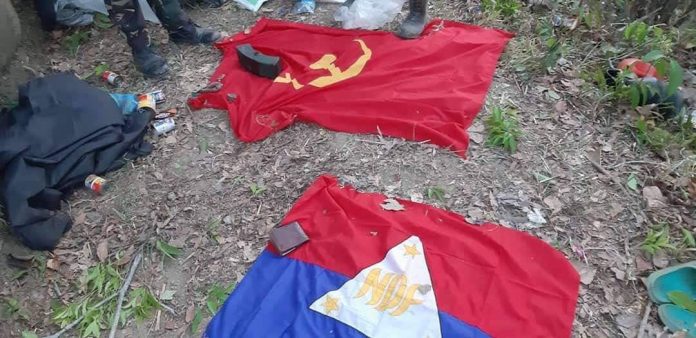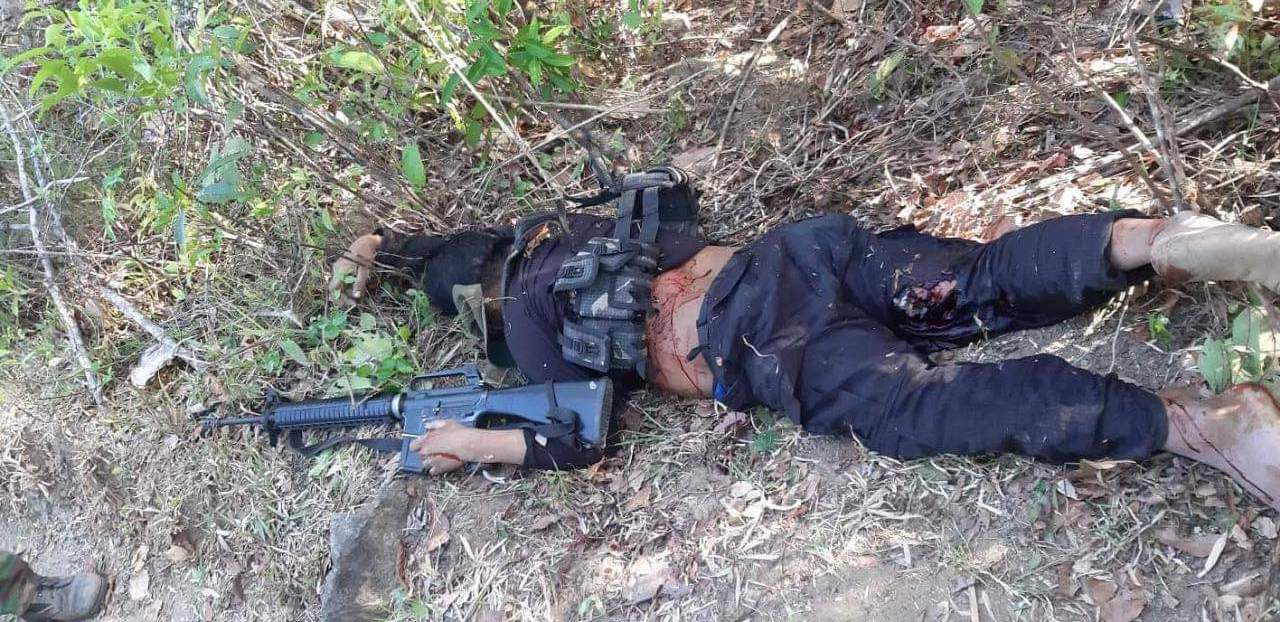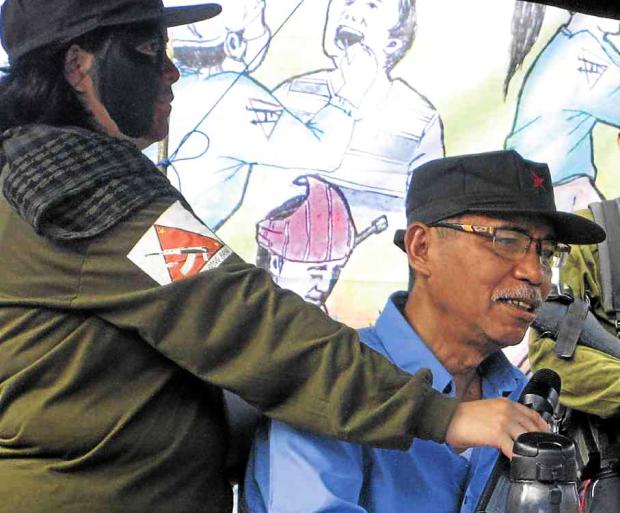From the New York Times (Mar 24, 2019):
An ISIS Couple’s Troubling Path to Terror Recruiting (By
Hannah Beech and Jason Gutierrez)

A soldier inspecting a vehicle last month in the southern Philippine city of Zamboanga, where Mohammed Reza Kiram grew up. He and his wife, Ellen Barriga, recruited other Southeast Asians for the Islamic State, Philippine and American intelligence officials say.CreditJes Aznar for The New York Times
ZAMBOANGA, Philippines — She was a Catholic math whiz with an M.B.A. from one of the best universities in the Philippines. He was the Muslim descendant of a sultanate family, schooled in computer science.
The couple, Ellen Barriga and Mohammad Reza Kiram, could have served as the model of a modern interfaith marriage. Instead, they are poster children for how violent ideology transformed educated Filipinos into agents of death for the Islamic State.
In 2015, Ms. Barriga and Mr. Kiram traveled to Syria to join the terrorist group, becoming key recruiters of other Southeast Asians, according to Philippine and American intelligence officials.
In January, American-backed Syrian forces announced that the pair had surrendered, joining thousands of foreign militants caught between a crumbled caliphate, which lost its last territory in the region on Saturday, and home countries reluctant to take them back.
A year after arriving in Syria, Mr. Kiram, wavy-haired with jutting cheekbones, appeared in a video for the Islamic State. In it, he and a Malaysian and Indonesian urged foreigners to wage jihad in Muslim parts of the Philippines, where the Islamic State has been gaining strength.
“Worshipers of the cross,” he warned, “we will use the language of swords and language of bullets. Our brothers in the path of Allah will soon rise in your own land.”
Holding a dagger, Mr. Kiram then beheaded a hostage kneeling in front of him.
Last year, the United States Treasury Department placed sanctions on Mr. Kiram, 29, for “brutal acts as part of a propaganda campaign to attract radicals to join militant terrorist groups in Southeast Asia.”
Ms. Barriga, who converted to Islam after earning an accounting degree, has been accused by the Philippine authorities of channeling Islamic State funds to local militants and aiding in a failed bombing attempt in the southern Philippine city of Davao.
 A mosque in Zamboanga. Mr. Kiram’s family worried that he was attending a hard-line mosque associated with Tablighi Jamaat, a missionary movement from South Asia that has been accused of nurturing militants.CreditJes Aznar for The New York Times
A mosque in Zamboanga. Mr. Kiram’s family worried that he was attending a hard-line mosque associated with Tablighi Jamaat, a missionary movement from South Asia that has been accused of nurturing militants.CreditJes Aznar for The New York TimesHer Christian name helped Ms. Barriga, 38, set up bank accounts and avoid suspicion even as she was gravitating to the most radical fringes of Islam, the intelligence operatives said.
Sitting at home in Davao, Edgar Barriga, Ms. Barriga’s father, said he was relieved to hear news of his daughter, even though he was devastated by her chosen path.
“I am happy if she is with ISIS in Syria,” he said, “because at least that way I know my Ellen is alive.”
A movement like the Islamic State needs two types of people: rank-and-file recruits, often poor and uneducated fodder for battle, and ideologues who can entice the masses to their cause. Mr. Kiram and Ms. Barriga were in the latter camp: smart, charming, well connected.
“We need to figure out how people like Reza Kiram, with no prior indication, become violent extremists,” said Col. Leonel Nicolas, the commander of the joint task force in the southern city of Zamboanga, where Mr. Kiram grew up.
Even to their closest family and friends, the couple’s path to radicalization is indistinct. There were no defining traumas or fractures with society, only small signs that, in retrospect, hinted at trouble: too much time spent online, perhaps, or a fearlessness that could ripen into fanaticism.
“I feel regret whenever I think of him because he was such a good student,” said Sheikh Mahir Gustaham, who taught Mr. Kiram Islamic jurisprudence and considered him his favorite pupil. “For me it’s a lesson learned: to watch closely and intently the good and quiet students because they may change.”
Ms. Barriga grew up in a tidy neighborhood in Davao, attending the parish church of St. Michael, named after the archangel who defends the Christian faith against demonic forces. Her father worked for a cocoa company. Her mother volunteered at church.
 Ayub Julpawai, left, the head imam at the mosque that Mr. Kiram attended.CreditJes Aznar for The New York Times
Ayub Julpawai, left, the head imam at the mosque that Mr. Kiram attended.CreditJes Aznar for The New York TimesAt Francisco Bustamante National High School, Ms. Barriga excelled, leading student government and organizing dances. She won a scholarship to the prestigious Ateneo de Davao University and worked as an accounting manager after graduation.
She had a Muslim boyfriend and converted, wearing a head scarf in public. The Virgin Mary, Ms. Barriga explained to her parents, wore a veil, so why shouldn’t she?
Ms. Barriga’s mother, Fely Barriga, consulted with their parish priest. “He told me that I should let her go to Islam,” she recalled. “She would come back to the church when she was ready.”
After Ms. Barriga married Mr. Kiram, her parents saw their son-in-law only once, for 10 minutes in a hospital corridor after Ms. Barriga gave birth to a daughter.
Whenever her parents visited, there were excuses for his absence. Mr. Kiram was sourcing seafood, Ms. Barriga would explain.
“He was always busy with the dried fish and sea cucumbers,” Fely Barriga said. “I didn’t want to ask too many questions.”
In 2015, the couple said they were moving to Zamboanga, a city on a southern tendril of the island of Mindanao. It was the last time Ms. Barriga’s parents saw their daughter.
That same year, unknown to their families, Mr. Kiram and Ms. Barriga took a flight to Turkey, via Japan, and made their way overland to Syria with their daughter, according to the intelligence officials.
 Edgar and Fely Barriga, the parents of Ellen Barriga, at home in the southern Philippine city of Davao. “I am happy if she is with ISIS in Syria,” Mr. Barriga said, “because at least that way I know my Ellen is alive.”CreditJes Aznar for The New York Times
Edgar and Fely Barriga, the parents of Ellen Barriga, at home in the southern Philippine city of Davao. “I am happy if she is with ISIS in Syria,” Mr. Barriga said, “because at least that way I know my Ellen is alive.”CreditJes Aznar for The New York TimesMs. Barriga called home regularly, but she forbade her parents to call back. When they tried anyway, the number wouldn’t connect.
In 2017, Ms. Barriga asked for her father’s assistance with a bank account that had been flagged following what the bank called a suspicious large transaction. Mr. Barriga went to the bank to unfreeze the account, which he confirmed to the police.
“She is my daughter,” he said. “It’s natural to help your daughter.”
The Kiram family is royalty in Zamboanga, descendants of a Muslim sultanate that ruled a chain of islands stretching toward Malaysia. When Spanish colonialists arrived in the 16th century, most of the Philippines converted to Catholicism, but the southern part retained its Muslim roots.
Mr. Kiram’s father was a businessman. His mother, like so many educated women in the Philippines, worked overseas, as a nurse in Saudi Arabia. As a result of his mother’s foreign income, Mr. Kiram’s life was comfortable, but he lacked parental discipline, his family said.
Mr. Kiram attended the Filipino-Turkish Tolerance School, a private academy for Muslim and Christian students in Zamboanga, a frontier city with a long history of bombings and militant sieges.
For his younger cousins, Mr. Kiram, who went on to study computers at a technical institute, was a role model, always surrounded by a posse of friends. More than anything, Mr. Kiram distinguished himself through his staunch defense of his morals, said one cousin, who did not want to be named because he feared being stigmatized for his infamous relative.
The cousin found out about Mr. Kiram’s radicalization when he saw news about the Islamic State video on television. “It was the biggest shock of my life,” he said.
Sheikh Gustaham, Mr. Kiram’s former Islamic teacher, was impressed with his linguistic talent: Malay, Turkish, Arabic, English and a number of Filipino languages.
 Ms. Barriga’s high school in Davao, where she led student government and organized dances.CreditJes Aznar for The New York Times
Ms. Barriga’s high school in Davao, where she led student government and organized dances.CreditJes Aznar for The New York Times“In my opinion, he was brilliant,” Sheikh Gustaham said.
After about a year of study, Mr. Kiram questioned his teacher about things he was reading online: the persecution of Palestinians, Syrians and Muslim Filipinos. His family worried that he was attending a hard-line mosque associated with Tablighi Jamaat, a missionary movement from South Asia that has been accused of nurturing militants.
At the hard-line mosque last month, Ayub Julpawai, the head imam, said he was unconcerned the
Islamic State had bombed a church in the southern Philippines in January, killing 23 people. He also shrugged at the Philippine military’s bombardment of Muslim communities in an effort to catch the perpetrators.
“The military campaign is a punishment from Allah because some Muslims no longer follow the way of Islam,” he said.
The Philippine police now say that Mr. Kiram, known by the alias Abdul Rahman, was involved in the 2012 bombing of a bus terminal in Zamboanga.
That year, Mr. Kiram helped produce a militant video that was the first in the Philippines to use the black flag later associated with the Islamic State as a backdrop, according to Rommel Banlaoi, author of the upcoming book “Terrorism in the Philippines: From Al Qaeda to ISIS.”
The 2016 Islamic State video from Syria, with Mr. Kiram echoing the cadences of a preacher, was so slickly made that the Philippine military uses it in an internal course on effective propaganda.
Meanwhile, Ms. Barriga was making alliances with other Balik Islam, as people who convert from Christianity to Islam are known in the Philippines.
In 2012, Mr. Kiram and Ms. Barriga were arrested in connection with a foiled bombing plot in which an Indonesian man and his Balik Islam wife were accused of trying to target a night market in Davao. The Indonesian was shot and killed by the police. His wife, Mr. Kiram and Ms. Barriga were all released for lack of evidence.
It is not clear what will happen now to Mr. Kiram and Ms. Barriga, who are believed to be in a Syrian prison camp teeming with foreign militants. The Philippine Department of Foreign Affairs declined to comment on their case.
In Zamboanga, Sheikh Gustaham and other moderate Muslims who knew Mr. Kiram are nervous. Clerics promoting interfaith events have gotten death threats.
“He may call on all Islamic teachers and tell them I am not a real Muslim,” Sheikh Gustaham said of his once favorite student. “It’s frightening.”




















